#Festival Visions 2016
Explore tagged Tumblr posts
Text
youtube
Ingrid Laubrock Sextet - Vision Festival 20, Pt I (2016)
Ingrid Laubrock - tenor sax Craig Taborn - piano Miya Masaoka - koto Dan Peck - tuba Tyshawn Sorey - drums Sam Pluta - electronics
Part II
#2010s#germany#Ingrid Laubrock#jazz#free jazz#improvisation#live jazz#Women in jazz#Craig Taborn#Miya Masaoka#Dan Peck#Tyshawn Sorey#Sam Pluta#Vision Festival 20#2016#week 44 2023#Youtube
2 notes
·
View notes
Text

Taxi Driver will be released on Steelbook 4K UHD (with Blu-ray and Digital) on June 25 via Sony. The influential 1976 neo-noir psychological thriller is directed by Martin Scorsese.
Robert De Niro stars with Jodie Foster, Albert Brooks, Harvey Keitel, Leonard Harris, Peter Boyle, and Cybill Shepherd. Paul Schrader (Raging Bull) wrote the script.
Taxi Driver has been restored in 4K from the original camera negative with Dolby Vision. Special features are listed below, where you can also see the full Steelbook art.

Disc 1 - 4K UHD:
Making Taxi Driver - 1999 documentary
Storyboard-to-film comparisons with Martin Scorsese introduction
Photo galleries
20th anniversary trailer
Disc 2 - Blu-ray:
Audio commentary by director Martin Scorsese and writer Paul Schrader
Audio commentary by writer Paul Schrader
Audio commentary by film historian Professor Robert Kolker
2016 Tribeca Film Festival Q&A with Martin Scorsese, Robert De Niro, Jodie Foster, and more
Commentary with Recorded by the Criterion Collection Commentaries by Writer Paul Schrader and by
Martin Scorsese on Taxi Driver
Influence and Appreciation: A Martin Scorsese Tribute
Producing Taxi Driver
God's Lonely Man
Taxi Driver Stories
Travis' New York
Travis' New York Locations
Theatrical trailer
A psychotic New York cabby is driven to violence in an attempt to rescue a teenage prostitute.
Pre-order Taxi Driver.
#taxi driver#martin scorsese#robert de niro#travis bickle#jodie foster#steelbook#dvd#gift#paul schrader#70s movies#1970s movies#albert brooks#harvey keitel#peter boyle#cybill shepherd
15 notes
·
View notes
Text
Ganja White Night and Tape B presents: Ganja Tape
It's electronic with drum & bass, and some EDM

Label: SubCarbon Records
Growing up in the small town of Mons, Belgium, the duo was in a way sheltered from the music industry of the United States, allowing them to create a unique sound of their own. With their musical roots ranging from early UK bass and reggae vibes, Ganja White Night has twisted together their influences and spit out something truly fresh and their own. After a decade-plus deep discography, Ganja White Night struck a chord with their 2016 Mr. Wobble LP release, cementing their iconic Wobble sound. Centered around the idea of creating their own mini animated universe, the duo teamed up with Ebo, a famous Belgian street artist, to bring their vision alive. With the debut of Wobble Master & LFO Requiem full animated music videos in 2016, the story of Mr. Wobble was born.

Subsequent albums – which continued to tell Mr. Wobble's adventurous tale through Ganja White Night's iconic Wobble sound – included The Origins, The One, Dark Wobble, and their most recent album, Unity. Their significant collaborations to date include bass-music powerhouses like Zeds Dead, Subtronics, Slander, Liquid Stranger, and long-time collaborator Boogie T. Drawing similarities to the visual aspect of the Gorillaz and their unique style of telling a story through their music, the duo plans to continue exploring their own universe.
Tape B, born Kemal Berk Alkanat, is a dynamic force in today's electronic music scene, merging the nostalgic vibes of old-school dubstep with contemporary bass music and hip-hop. Born in Turkey and raised in the US from the age of three, Tape B brings a distinctive sound that captivates with a blend of nostalgia and modernity, termed "Old School x New School." His musical journey began at the University of Central Florida, influenced by early 2000s hip-hop and electronic pioneers like UKF and The Glitch Mob. His career took a professional turn after a revelatory experience at the Lost Lands Music Festival in 2019. Tape B's rise to prominence was fueled by viral SoundCloud mixes and dynamic live performances, including his iconic "Yo, Tape B" tag, which has become a recognizable call throughout modern clubland and festivals. Achieving significant traction with remixes and original tracks, including the standout "Trippy Land" with Mersiv and Juicy J, Tape B has redefined expectations within bass music. As of 2024, Tape B achieved sellouts of every headline since December 2023, including rapid ticket sales at Denver's Mission Ballroom and New York's Great Hall.
instagram
His introduction of Tape B Block Parties in 2024, as recently showcased across Texas with two sold-out events, has brought classic and modern dubstep brilliance to the forefront, further cementing his influence in the scene. In August 2024, Tape B released a genre-blending collaboration with superstar producers John Summit and Subtronics. Tape B remains a vibrant and influential figure in electronic music. His commitment to innovation, community, and joy through music continues to drive his rapidly ascending career.
2 notes
·
View notes
Text
Tatiana Huezo
youtube
Director and screenwriter Tatiana Huezo was born in 1972 in San Salvador, El Salvador. Huezo first garnered international attention for her 2011 debut documentary film, The Tiniest Place, which was screened at over 80 film festivals globally and won the Grand Prix for Best Feature-length film at Visions du Reel. Her film Tempestad, which follows the stories of two women affected by human trafficking, won Best Documentary at the 2016 Fenix Awards, and four Ariel Awards. Huezo's first fictional feature, Prayers for the Stolen, received a Special Mention from the jury at Cannes.
#film#directors#women in film#women directors#documentaries#latina#latina filmmakers#el salvador#cinema#latin america#latin american cinema#Youtube
8 notes
·
View notes
Text

La La Land (2016, Damien Chazelle)
08/11/2023
La La Land is a 2016 film written and directed by Damien Chazelle.
The film tells the love story between a jazz musician and an aspiring actress, played respectively by Ryan Gosling and Emma Stone, made a contemporary musical that pays homage to the classic musical films produced between the 1950s and 1960s. The film's title is both a reference to the city of Los Angeles and the meaning of being in the "dream world" or "out of reality". Chazelle wrote the screenplay in 2010, but couldn't find a studio willing to finance the project. Only after the success of his 2014 Whiplash did the project gain interest from production companies.
The film received universal acclaim from critics, who praised Damien Chazelle's direction, Stone's performance and the film's soundtrack, receiving top marks from many critics and proving to be one of the most popular films since its theatrical release.
It was the opening film of the 73rd Venice International Film Festival, where Stone won the Volpi Cup for Best Female Performance. It received 14 nominations for the 2017 Oscars, equaling the record of films such as All About Eve and Titanic, ultimately winning 6 statuettes. It won seven Golden Globes, out of seven nominations, the Audience Award at the Toronto International Film Festival and many other international awards, becoming one of the most awarded and appreciated films of 2016.
On a hot and busy Los Angeles highway, the first meeting takes place between Mia, an aspiring actress who works as a barista at a café in the Warner Bros. Studios, and Sebastian, a jazz pianist who dreams of opening his own place. After yet another failed audition, Mia's roommates, seeing her down in the dumps, convince her to go to a sumptuous party in the Hollywood Hills, at the end of which, walking home, she is attracted by music and enters the club where it comes from.
A few months later, the two meet at a party where Sebastian is playing in an 80s cover band, and it is from that moment that they begin to see each other as friends, despite the strong chemistry between them, discussing their passions and their respective projects for the future. Sebastian invites Mia to the cinema to watch Rebel Without a Cause and she accepts, forgetting a previous commitment she made with her current boyfriend Greg. The two end the evening with a romantic dance at the Griffith Observatory.
Only a few people attend Mia's show. Disappointed and embittered by the negative criticism received and by the lack of Sebastian, Mia decides to leave Los Angeles and her aspirations to return to her parents in Boulder City, Nevada.
Being also a musician, Damien Chazelle has always had a strong predilection for musical films. His vision for the film was to "take an old-fashioned musical, but portray it in real life where things don't always work out", as well as paying homage to all the people who move to Los Angeles to pursue their dreams. Chazelle conceived the idea for the film when he was a student at Harvard University, along with his classmate, Justin Hurwitz. The two explored the concept in their senior thesis through a low-budget musical about a Boston jazz musician called Guy and Madeline on a Park Bench.
#la la land#damien chazelle#jazz#ryan gosling#emma stone#musical theatre#1950s#1960s#los angeles#whiplash#venice film festival#73rd Venice International Film Festival#venice biennale#Volpi Cup for Best Actress#89th Academy Awards#all about eve#titanic#golden globe awards#toronto international film festival#actor#warner bros#pianist#Hollywood Los Angeles#Tribute act#1980s#rebel without a cause#griffith observatory#Boulder City Nevada#nevada#harvard university
10 notes
·
View notes
Photo
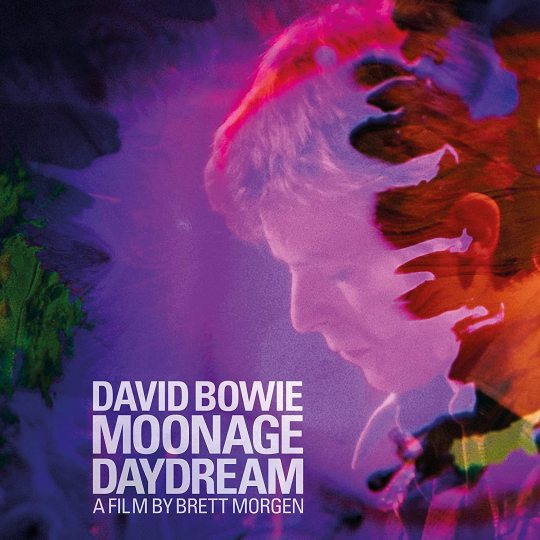

Moonage Daydream will be released on triple vinyl on 31st March 2023.
Disc 1
Side A
“Time… one of the most complex expressions…”
Ian Fish U.K. Heir (Moonage Daydream Mix 1)
Hallo Spaceboy (Moonage Daydream Remix Edit)
Medley: Wild Eyed Boy From Freecloud / All The Young Dudes / Oh! You Pretty Things (Live)
Life On Mars? (2016 Mix Moonage Daydream Edit)
Moonage Daydream (Live)
Side B
The Jean Genie / Love Me Do / The Jean Genie (Live) (featuring Jeff Beck)
The Light (Excerpt)*
Warszawa (Live Moonage Daydream Edit)
Quicksand (Early Version 2021 Mix)
Medley: Future Legend / Diamonds Dogs intro / Cracked Actor
Disc 2
Side A
Rock ‘n’ Roll With Me (Live in Buffalo 8th November 1974)
Aladdin Sane (Moonage Daydream Edit)
Subterraneans
Space Oddity (Moonage Daydream Mix)
V-2 Schneider
Side B
Sound And Vision (Moonage Daydream Mix)
A New Career In A New Town (Moonage Daydream Mix)
Word On A Wing (Moonage Daydream Excerpt)
“Heroes” (Live Moonage Daydream Edit)
D.J. (Moonage Daydream Mix)
Ashes To Ashes (Moonage Daydream Mix)
Move On (Moonage Daydream acappella Mix Edit)
Moss Garden (Moonage Daydream Edit)
Disc 3
Side A
Cygnet Committee/Lazarus (Moonage Daydream Mix)
Memory Of A Free Festival (Harmonium Edit)
Modern Love (Moonage Daydream Mix)
Let’s Dance (Live Moonage Daydream Edit)
The Mysteries (Moonage Daydream Mix)
Rock ‘n’ Roll Suicide (Live Moonage Daydream Edit)
Ian Fish U.K. Heir (Moonage Daydream Mix 2)
Side B
Word On A Wing (Moonage Daydream Mix)
Hallo Spaceboy (live Moonage Daydream Mix)
I Have Not Been To Oxford Town (Moonage Daydream acappella Mix Edit)
“Heroes”: IV. Sons Of The Silent Age (Excerpt) *
★ (Moonage Daydream Mix Edit)
Ian Fish U.K. Heir (Moonage Daydream Mix Excerpt)
Memory Of A Free Festival (Moonage Daydream Mix Edit)
Starman
“You’re aware of a deeper existence…”
Changes
“Let me tell you one thing…”
“Well, you know what this has been an incredible pleasure…”
Pre-order it here
31 notes
·
View notes
Text
The Wrap
The Apprentice’ Review: Donald Trump Movie Starring Sebastian Stan Plays Like a Tragic Frankenstein Tale (click for article)
Cannes 2024: With Stan as a young Trump and Jeremy Strong as lawyer Roy Cohn, the film is amusing at times and disturbing at others
STEVE POND May 20, 2024 @ 10:05 AM
There’s not much in Ali Abbasi’s filmography to make you think that he’d want to make a movie about a young Donald Trump and his mentor Roy Cohn. But there’s a lot in the Iranian-born, Copenhagen-based filmmaker’s work to suggest that if he did make such a movie, it could be both fascinating and terrifying.
And in a way, “The Apprentice,” which premiered in the Main Competition at the Cannes Film Festival on Monday, is both of those things. It’s a true-life horror story in some ways, and Abbasi approaches it as a Frankenstein tale in which the mad doctor creates a monster and then loses control of it. But after years of Trump imitations (and the real thing), it also can’t help but feel a little cartoonish, and maybe not the best use of the director’s particular talents.
Abbasi’s feature debut was a 2016 horror film about surrogacy; his second was the 2018 Cannes sensation “Border,” which drew screams and squeals with its scene of troll sex; and his third was the visceral drama “Holy Spider,” about a real-life case in which an Iranian serial killer who preyed on sex workers and was applauded by many in the conservative society.
To put that skill set – an uncompromising, often dark vision, a taste for horror and an outsider’s perspective – in the service of a film about the young would-be mogul and the conniving lawyer who taught him how to win at all costs wasn’t a sure thing by any means, but it was awfully intriguing.
And to call that film “The Apprentice,” swiping that title from the TV show that helped give Trump the profile to run for president, suggested a sense of humor that might be necessary to survive this particular project.
There’s humor in the film, mostly in the knowing chuckles elicited when a key moment of the Trump bio clicks into place:
Here’s where Roy Cohn (Jeremy Strong) introduces Trump (Sebastian Stan) to Rupert Murdoch and says “he could really help you” … here’s a young Roger Stone showing Trump a Ronald Reagan campaign button that says, “Let’s Make American Great Again” … Here’s Cohn taking Trump clothes shopping and advising him on the kind of suits that will help hide his “big ass.”
These are the building blocks of the Trump we think we know, with the movie’s opening title card saying that the film is “based on real events” but also includes fictionalized elements. And make no mistake, if Trump and his supporters get any idea of what’s in “The Apprentice,” the cries of “fake news!” will be resounding, because this semi-biopic begins with mockery and ends with dread.
At the start of the film, which adopts a 1970s style for its shots of the New York City of that era, Trump is a guy who trudges door to door in a rundown apartment building (“Trump Village”) built by his father, collecting rent checks from struggling tenants who clearly don’t like him.
In New York City, meanwhile, Trump has been admitted to an exclusive private club, where he regales a date with descriptions of the powerful men who surround them. “Why are you so obsessed with these people?” she asks, and he offers a weak “I’m not obsessed, I’m just curious” defense that isn’t enough to keep her from heading to the powder room and then out the door.
From the next room in the club, an imperious lawyer Roy Cohn invites the poor guy to come sit at the table Cohn is sharing with a couple of mobster clients and some other people he deems unworthy of introduction. Everybody at the table laughs at Trump, with his timid manner and his order of ice water — but if the young Donald is essentially presented as a socially awkward, vaguely pathetic wannabe unable to get out from under a domineering father, Cohn sees something he likes in the little bit of empty bravado Trump can summon up.
“I like the kid,” he says at one point. “I feel sorry for him.”
Or maybe he sees something he can mold in the clueless waif with family money. Cohn, who was instrumental in sending convicted spies Julius and Ethel Rosenberg to the electric chair in the 1950s, spouts “America first” speeches that are echoed in Trump’s stump rhetoric to this day. And he offers his three rules for winning: “attack attack attack,” “admit nothing, deny everything” and “no matter what happens, claim victory and never admit defeat.”
Strong nails a certain blank, slack-jawed, morally vacant look that Cohn had, even if he’s hardly a dead ringer for the vicious fixer who dropped homophobic slurs and insisted until the end that he was dying of liver cancer rather than AIDS. Stan has a tougher job of it — because despite the makeup and hair, it’s impossible to compete with the real thing that has dominated media for the past decade.
The movie essentially shows Trump learning to lie, ineptly wooing his first wife, Ivana (Maria Bakalova), building the Commodore Hotel and Trump Tower, making an ill-advised foray into Atlantic City and gulping diet pills to keep himself going. It’s the construction of the Trump persona, with help from the slimy advisor who has the keys to “winning.”
And it’d play like a tragedy if we didn’t know what happened after the movie ends. The movie has the feel of a rise-and-fall saga, with Trump growing increasingly unhinged and out of control — and with Stan increasingly adopting the vocal and physical mannerisms we see on social media and the news today. It’s most horrifying — and most Abbasi-like — in an extended scene that cuts between a memorial service for Cohn and Trump on the operating table getting liposuction and a scalp reduction, all set to the strains of “My Country Tis of Thee.”
That sequence might be the one that makes the most of Abbasi’s uncompromising gifts, and suggests that the director’s heart might be in a truly wild movie not quite so tethered to biographical details. “The Apprentice” is amusing at times and disturbing at others, but it’s hard not to think that Ali Abbasi could have done something weirder, wilder and more satisfying if he’d found a way to bring in more magic and less MAGA.
#the apprentice#sebastian stan#donald trump#jeremy strong#roy cohn#maria bakalova#the apprentice review
3 notes
·
View notes
Note
Care to tell some facts about the ROs? (just to get to know the ROs)
Absolutely!
Harlowe
His cousin, Storm, is the only person in his adoptive family that he gets along with. Harlowe views her as a younger sister, and would do anything to keep her safe. That being said, he is not a fan of Storm's boyfriend, Dakota.
He lives in an old factory that is owned by his adoptive family. He fixed it up, and has converted the lower levels into training areas/hangout spots for him and the rest of the nephilim.
He loves winter. Like, almost too much. Gets super excited when the first snowfall of the year comes.
Unusually good night vision. Like, even for a nephilim he's really good at seeing in the dark.

Florence
She loves the beach. To the extent that if she could live on the beach for the rest of her life, she absolutely would. It's her comfort place.
She was supposed to be with her mom when the accident that killed her happened. They were supposed to go Christmas shopping together, but Florence had stayed up late studying for a test and slept past her alarm. Her mom didn't want to wake her because she knew she'd be tired. Florence beats herself up over this a lot, to this dad wondering if she could have somehow prevented her mom's death.
There is no solid reason as to why she dislikes Harlowe. If you ask her about it, she'll say that he just has one of "those faces."
Aena and Eden are two of her favorite people prior to meeting MC. She likes to hang out in the coffee shop while Eden is working, and goes out clubbing with Aena every Friday night.

Eden
Eden grew up in a little apartment above the library that his dad owns/runs. So he was always surrounded by books and began reading at an early age.
Eden's dad also has a few library cats that run loose around the library. Eden was the one who named all of them. His favorite is a black cat named Jinx that he found as a kitten on the side of the highway!
He's terrified of turtles because he got bit by one when he was younger.
Storm's boyfriend, Dakota, works at the cafe with him! Eden had a small crush on him for a while before he found out that he was already in a relationship.

Aena
She has two dogs! They're sisters that she rescued and named Flora and Fauna. They both look like some sort of hound/lab/golden retriever mix. They're practically twins, except Flora has a white marking on her chest.
She LOVES sour patch kids. When she was younger, her grandmother used to buy her a bag of sour patch kids whenever she went to visit.
Loves music festivals. She's attended multiple, but her favorite was Coachella in 2016. Really wants to attend Burning Man.
She's really bad about setting a healthy sleep schedule. Often is up until 4am and then has to stay up all day until it's a "normal" time to go to bed.

Alistaire
HATES having to learn new slang. He thinks it's important to keep up with lingo and slang, but hates having to learn it every few years. Hates it even more when a word switches meanings without him knowing. This has caused him issues in the past.
Fresh fruit is one of his favorite snacks. Cherries, strawberries, and grapes specifically. He likes being able to just pop the whole fruit in his mouth while he's working.
Tried growing a garden on the roof of his apartment building once. Spoiler: it did not work. He's a great teacher but horrible at keeping stuff alive.
Goes to the park a lot to feed the birds. Particularly loves the ravens and the pigeons.
14 notes
·
View notes
Text
On November 10, 2016, The Zodiac Killer was screened at the Night Visions International Film Festival.

#the zodiac killer#the zodiac killer 1971#tom hanson#exploitation film#true crime film#z movies#horror art#horror film#horror movies#horror#slasher movies#slasher#agfa#tcm underground#movie art#art#drawing#movie history#pop art#modern art#pop surrealism#cult movies#portrait#cult film
4 notes
·
View notes
Text
Dr. Stacy Alaimo
(she/they)
Professor of English, Director of Graduate Studies for English;
Core Faculty Member, Environmental Studies;
COLT Participating Faculty; CSWS Faculty Affiliate
University of Oregon
I write about the strange and often volatile relations between environmentalism, science, theory, literature, art, popular culture, and gender. My concept of trans-corporeality links material feminism, new materialism, environmental justice, and environmental posthumanism. While my first three books build one coherent theoretical argument, my recent work turns to ocean life, developing the "blue" or oceanic humanities along with marine science studies.
Current Project:
The Abyss at Hand: Aesthetic Encounters in the Science, Art, and Literature of Deep Sea Creatures.
This book investigates the science, art, film, science fiction, and science writing about deep sea creatures, from the work of William Beebe and Else Bostelmann in the 1930s to the Census of Marine Life, which concluded in 2010. It investigates how aesthetic recognition of deep sea creatures scrambles scientific epistemologies and expands the terrain of environmental concern. I grapple with colonialist global visions, critique white masculinist narratives of exploration, analyze the categories of the surreal, weird, and alien; and swirl together emerging theories and methods in the blue humanities, while suggesting a more fluid and potent sense of the aesthetic. As the threats to ocean ecologies accelerate and the deep seas receive scientific, popular, and political attention, I hope this book will incite more discussion of the abyss at hand.
Exposed: Environmental Politics and Pleasures in Posthuman Times (Minnesota 2016) contends that the anthropocene is no time to set things straight. The book resists the temptation to engage in any sort of grand mapping that would be inimical to the embedded modes of epistemological, ethical, and political engagement that it traces, working instead through a surprising mix of theory, science, art, and activism. It begins by considering the pleasures of inhabiting places where the domestic refuses to domesticate and the walls decline to divide. It ends with an imaginary inhabitation of the dissolving shells of sea creatures who epitomize extinction in anthropocene seas. Along the way it considers queer animals, naked protests, the strange agencies of plastic pollution, and the gendered politics of climate change. Dwelling in the dissolve, where fundamental boundaries have begun to come undone, unraveled by unknown futures, can be a mode of ethical engagement and political inhabitation, which emanates from both feminist and environmentalist practices. Exposed locates new materialisms and material feminisms in fleeting ethical moments and compromised political sites that make up the massive temporal and geographical expanse of the anthropocene.[Cover art: Marina Zurkow, video still from "Slurb."]
Italian translation, published by Mimesis, 2023.
Korean translation, translated by Myung-Joo Kim, Chungnam National University Press, 2023.
Chapter,“Eluding Capture: The Science, Culture and Pleasure of “Queer” Animals,” translated into Greek by John Giannis/Rigas Ioannis, for a DIY activist zine, with new illustrations, 2017.
Inspired special issue of Simulacrum magazine (Amsterdam) “Practicing Exposure.” Including an interview with Max Litjens and Michelle Geraerts, 2019. http://simulacrum.nl/2019/call-for-papers-practicing-exposure-simulacrum-x-fiber-festival/
Special session, “Author Meets Readers” at the Association of American Geographers, 2018.
Podcast Interview, with Chris Richardson, This is Not a Pipe, February. 2018.https://www.tinapp.org/episodes/exposed
U of MN: Blog post: “Climate Change, Carbon-Heavy Masculinity and the Politics of Exposure” http://www.uminnpressblog.com/2016/10/climate-change-carbon-heavy-masculinity.html (October, 2016)
Culture of Energy Podcast, #39, with Cymene Howe and Dominic Boyer, Center for Energy & Environmental Research in the Human Sciences, Rice University
Podcast interview: New Books in Environmental Studies, New Books Network: Feb., 2017.
Finalist for 2017 ASLE Book Award for Ecocriticism
Bodily Natures: Science, Environment, and the Material Self (Indiana UP, 2010). Environmental justice, environmental health, and material feminisms occupy the "trans-corporeal" sites where body, place, and substance intersect. Bodily Natures develops my new materialist, material feminist conception of environmental thought and practice. [Cover art: "Toxic Girl," Fawazo.]
Winner of the ASLE Book Award for Ecocriticism, 2011
Featured in New Books Network interview and podcast, 2013: http://newbooksnetwork.com/stacy-alaimo-bodily-natures-science-environment-and-the-material-self-indiana-up-2010/
Plenary book session at the International Association of Environmental Philosophy, Eugene, Oregon, 2013.
Korean translation,by Joon Yun, Konkuk University, Seoul, Institute of Body and Culture, published by Greenbee, as 말, 살, 흙, Word, Flesh, Dirt, 2018; second printing, 2018.
Chapters translated into Portuguese, Spanish, Polish,
Key concept, “trans-corporeality” taken up widely in humanities and social sciences, and included as an entry in Rosi Braidotti’s The Posthuman Glossary
Art exhibit, “Transcorporeality” at the Museum Ludwig, Cologne Germany, Fall 2019; published essay in catalogue, Fall 2020.
Undomesticated Ground: Recasting Nature as Feminist Space (Cornell 2000) Written during a time when academic theory spurned the concept of "nature," this book delves into the negative discursive histories of that term, while posing more positive visions for feminist environmentalisms. By drawing on poststructuralist feminist theory and cultural studies, I advocate gender-minimizing, queer, intersectional feminisms that recast nature as feminist space. Darwinian feminists, Marxist feminists, birth control activists, postmodern artists and novelists, and queer writers reinvent the concept of "nature," contending that culture, not "nature" is the ground of essentialism and gender normatively. [Cover art: Ana Mendieta.]
Excerpts on “Mother Earth” reprinted in Nuda Paper(commercial paper sold in Stockholm, Paris, Berlin, and London), Fall 2019.
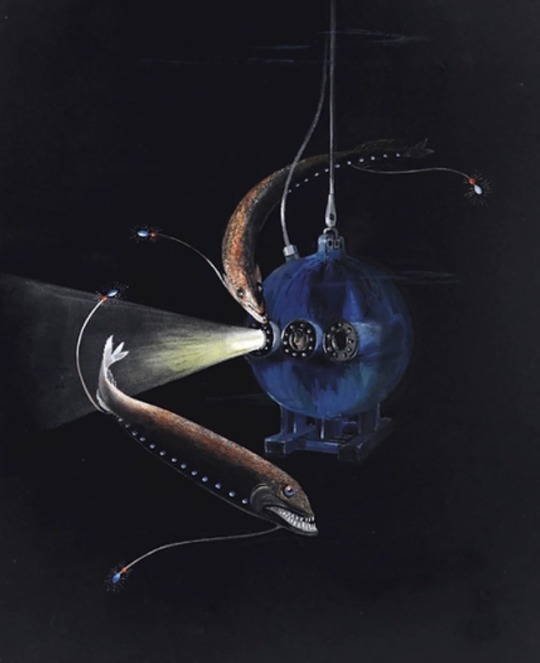
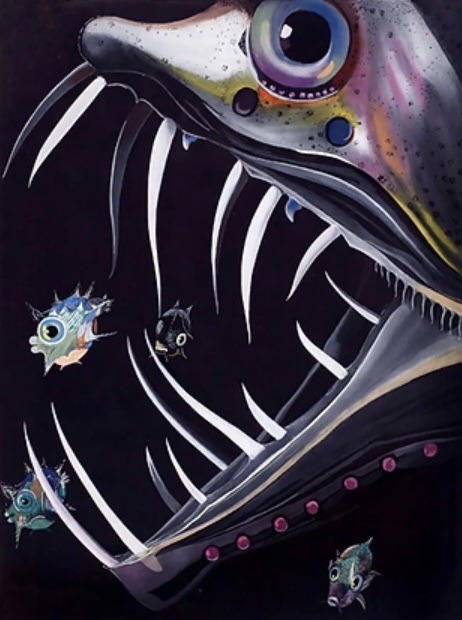
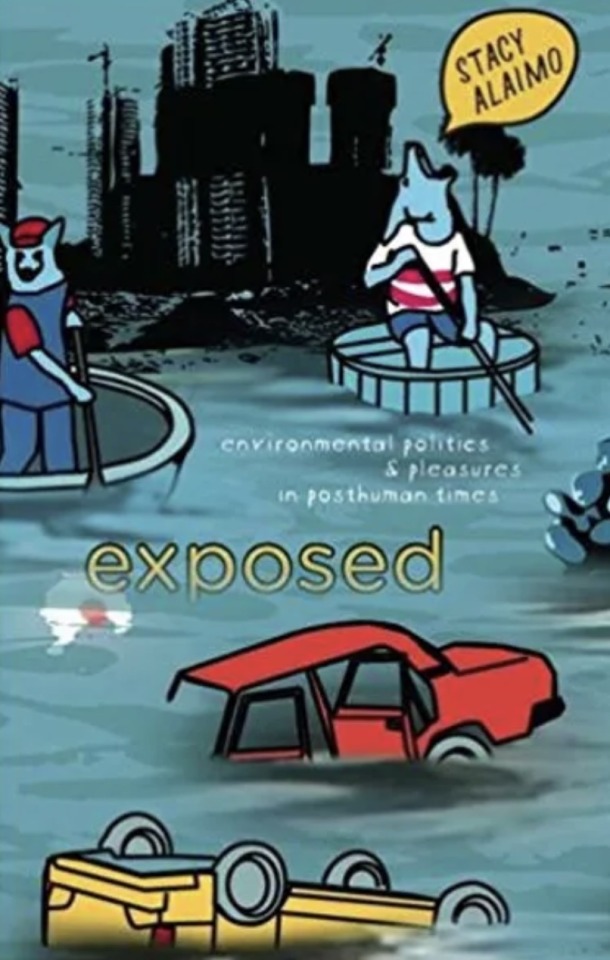
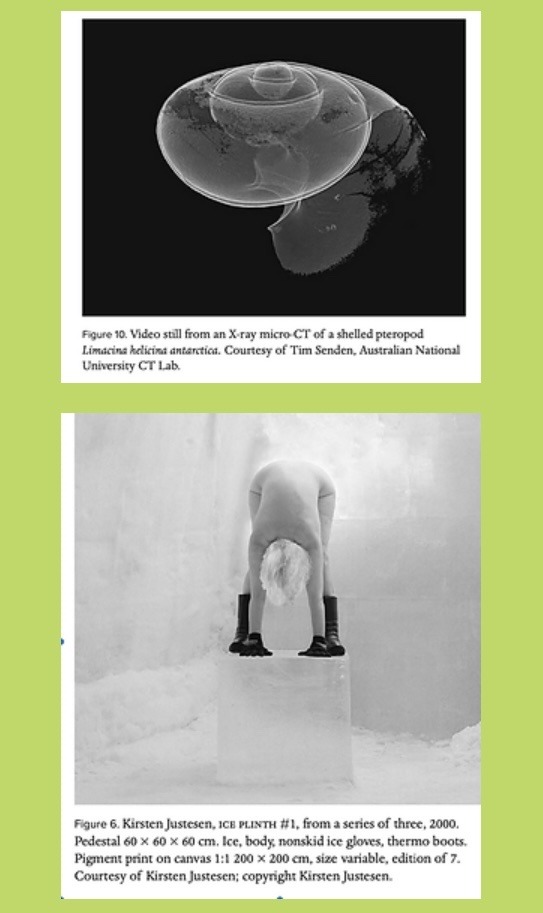

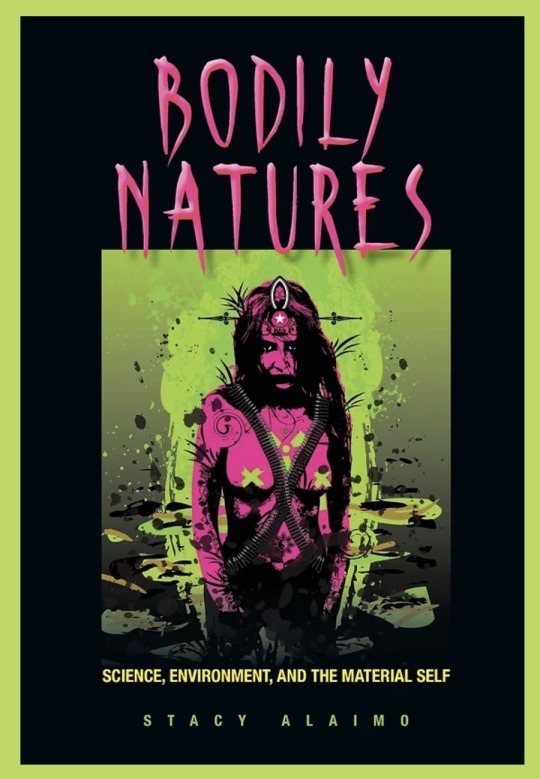
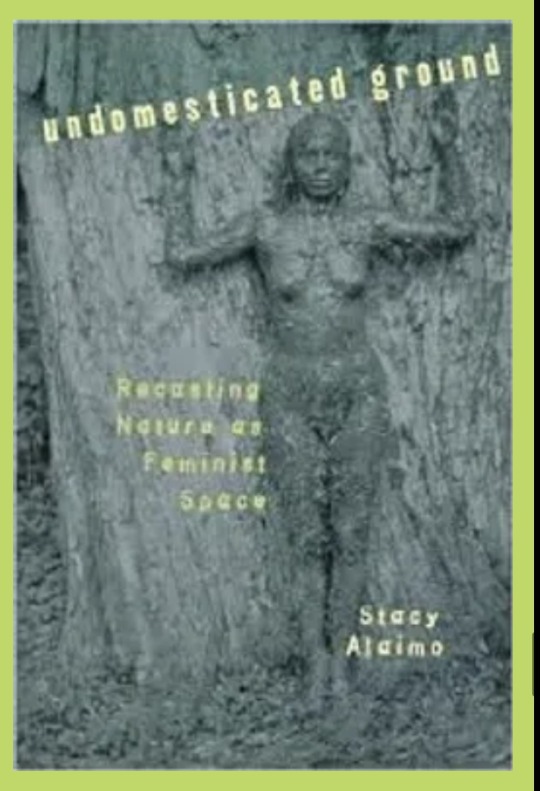
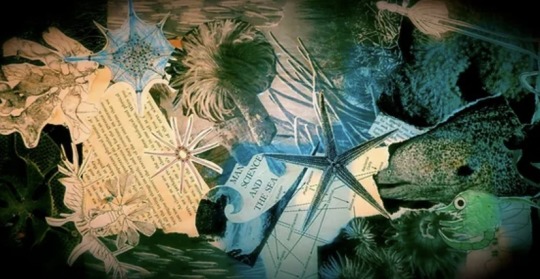
#Stacy Alaimo#post-humanism#ocean ecologies#art and ecology#ecology#science and art#queer animals#climate change#gendered politics#anthropocene
3 notes
·
View notes
Text
For many centrist supporters of former German Chancellor Angela Merkel, the prospect of Friedrich Merz leading her Christian Democratic Union (CDU) was once considered a worst-case scenario. The hard-right Merz had rivaled Merkel for the CDU’s top post at the turn of the century and was gradually sidelined before he left politics for corporate law and finance in 2009. An indefatigable opponent of the liberal migration policy Merkel became known for, Merz returned to Berlin in an attempt to claim the conservative party’s mantle after Merkel announced her retirement in 2018.
Last January, Merz was finally tapped as CDU leader following the party’s historically poor performance in Germany’s September 2021 federal elections. By that point, the so-called “Merkel continuity” candidates who defeated Merz in 2018 and 2021 CDU leadership contests—Annegret Kramp-Karrenbauer and Armin Laschet—had floundered. Laschet’s bid for chancellor that year proved particularly calamitous. The CDU lacked a clear policy platform and suffered from Laschet’s several public gaffes. The party bled masses of votes to the Greens and Social Democratic Party (SPD), which campaigned on climate and social policy and formed a coalition with the Free Democratic Party (FDP) under SPD Chancellor Olaf Scholz.
In the 14 months since Merz was elected to the CDU’s top job, the party has—predictably—shifted to the right. But it has also revitalized itself. Merz has proved to be a more comfortable fit than many observers expected. Free from the compromises and policymaking of governing, he has thrived as a combative opposition leader against Scholz’s limping coalition.
The CDU has topped most national polls since last February, and currently leads the SPD by around 9 percent. The party scored a major victory in Berlin’s Feb. 12 elections, sweeping the city-state’s suburban belt and finishing first among a smattering of parties with 28.2 percent of the vote. The CDU has now begun negotiating with the SPD to lead a two-party governing coalition there. It would be the CDU’s first time leading a government in the capital in more than two decades.
The election in Berlin is an omen for Scholz’s federal coalition. The famously left-leaning city-state was previously governed by a disharmonious SPD-led coalition, yet the CDU managed a win by railing ceaselessly against what it perceives as failed integration in immigrant neighborhoods, overly zealous climate protection measures, and out-of-control criminality. These themes are now a mainstay of the CDU’s national platform as it appears to be sharpening its talons for a culture war Merkel largely avoided during her 16 years in the chancellery.
Since 2016, when the SPD ditched a coalition with the CDU to govern Berlin alongside the Greens and Left Party, German conservatives have propagated an apocalyptic vision of the city-state. In the lawless and ungovernable capital, conservatives claim, a referendum to expropriate corporate landlords threatens a return to communist East Germany, unruly migrants and anarchists terrorize police, and cars will soon be banned from the inner-city so yoga moms can ride their cargo bikes in peace.
This “Chaos Stadt” theory was given some credence by the fact that February’s election was the re-run of a botched vote in 2021, when a marathon scheduled the same day disrupted polling centers’ operations. This year’s New Year’s Eve celebrations—when, as always, the streets become a legal free-fire zone for pyrotechnics—didn’t help the city’s reputation.
Videos circulated online of paramedics being attacked with fireworks in the borough of Neukölln, known for its large Arab- and Turkish-origin populations. Although the number of attacks was in line with previous years’ festivities, unconfirmed and incorrect figures initially suggested they had risen dramatically. The smell of gunpowder had barely dissipated before the CDU began its election campaign in earnest.
“The group of perpetrators must be clearly named,” Kai Wegner, the CDU’s leader in Berlin, announced on Jan. 3. “They were young men with migration backgrounds, who have nothing but contempt for the state and its representatives.”
Berlin’s SPD and FDP leaders also called for criminal prosecutions, but balked when a CDU representative in Berlin’s parliament requested the police publish the first names of German citizens arrested on New Year’s—an apparent attempt to determine who among them was not white.
The move earned sharp rebukes from all other major parties, and some within the CDU (though not Wegner). Only the far-right Alternative for Germany (AfD) party, which pulled a similar stunt in the state of Saarland in 2019, approved of the CDU representative’s demand. On television, meanwhile, Merz blamed “young people from the Arab world” for the violence, and inveighed against how teachers could not discipline children with migrant backgrounds without their parents intervening on behalf of their “little pashas.”
The campaign continued with attacks on the Greens’ plans to introduce car-free zones in the city, and ended with the Berlin CDU’s general secretary tweeting about a potential “election steal” should the CDU finish first but not lead the next government. (This is a not-uncommon occurrence in Germany, where coalition talks are the ultimate determinant of a government’s structure.)
Although the tweet seemed to be a tacit admission that the CDU did not expect to enter Berlin’s next government, the SPD soon gifted it that opportunity. After the CDU’s election success, SPD incumbent Berlin Mayor Franziska Giffey said she would no longer seek to continue leading her ruling coalition, which retained a majority—relegating the SPD to being junior partners of the CDU. (Giffey, who is to the right of her party’s mainstream, has never hidden her disdain for the Greens and Left.) This arrangement would also give the CDU a substantial blocking majority in the Bundesrat, Germany’s upper house of parliament, to which each of Germany’s 16 states sends a delegation reflective of its state government.
Soon after Giffey’s concession, Wegner began to backtrack on the first name scandal. “Mehmet belongs to Berlin just like Michael—that’s good, Berlin is a diverse city,” he tweeted. Suddenly faced with the prospect of power in a city where 54 percent of the electorate voted for left-of-center parties, the Berlin CDU dialed back its inflammatory rhetoric. Coalition negotiations will likely focus on more mundane issues, such as bolstering the police force, increasing private-sector home construction, and a transportation policy that accommodates car owners.
“On the federal level, you have to make your point and go for conflict, but on the state level, at least in some states, you have to cooperate,” Stefan Marschall, a political scientist at Heinrich Heine University Düsseldorf, told Foreign Policy.
Low voter turnout, a worsening housing crisis, dysfunctional administrative services, and a fatigued SPD-led governing coalition all but guaranteed the CDU a strong performance in Berlin. But the party’s campaign focus on immigration and security also appeared to pay off. A survey cited by German broadcaster ARD found “security and order” to be Berlin voters’ top priority, and 83 percent of the CDU’s new voters said it was good that the party had “clearly named problems with immigration.”
“The CDU in central office will learn lessons from this success, which indeed is a reward for a rather controversial and negative campaign strategy,” Marschall said. How far right the CDU can fan the flames of a culture war before it alienates its centrist voters—or potential coalition partners—remains to be seen.
The CDU’s new strategy is not limited to Berlin. In January, the party’s secretary-general, Mario Czaja, honed in on the issue of integration in education. “It’s not acceptable that other languages than German are spoken in schoolyards,” he said. “Otherwise, parallel societies will already form in schools.”
In Hamburg, another city-state where the CDU finds itself in opposition to the larger SPD and Greens, the party is gathering signatures for a ballot initiative to end the use of gender-inclusive language in public institutions. In German, such language extends not only to pronoun usage but also gendered nouns for groups of people and professions, and its sudden ubiquity is polarizing. By dwelling on these new linguistic conventions, the CDU and conservative press have found a proxy to agitate those who feel excluded by progressive social change more broadly. In the state of Thuringia, the CDU passed an opposition motion against using gender-inclusive language last November, with support from the AfD.
The CDU has also flexed its muscles in the Bundesrat, watering down a new welfare reform last November. Taking the Berlin mayoralty would increase the party’s ability to counter the Scholz government’s agenda on divisive issues such as citizenship reform, which the CDU has long opposed.
Among other measures, Scholz’s coalition intends to reduce the number of years before a resident is eligible for naturalization and to lift a near-total ban on dual citizenship. This could open citizenship to millions of long-term residents of Germany, including many within its sizable Turkish-origin community. The CDU launched an inflammatory campaign in the late 1990s to oppose the last major citizenship reforms under SPD then-Chancellor Gerhard Schröder. Merz carried this mantle into the 2000s by propagating the notion of a “leading culture” that implied immigrants should abandon their own customs in favor of Germany’s.
“We are seeing a certain polarization and charging of the discourse here,” Julia Reuschenbach, a political scientist at the Free University of Berlin, told Foreign Policy. “We are already familiar with this development from the United States in recent years and it now seems to be gaining ground in Germany as well.”
The CDU is broadly in line with the SPD-led federal government on Ukraine, however, and has urged quicker and more substantial weapons deliveries to the country. Still, there have been missteps: Though Merz was the first major German politician to visit Kyiv last May, he described some Ukrainian refugees in Germany as welfare tourists a few months later. (He later apologized for his comments.)
On climate, the CDU opposes the European Union’s 2035 combustion engine ban, which has now also been stalled by FDP Transport Minister Volker Wissing, to much consternation from other EU member states. Disruptive climate protests by the group Letzte Generation, or Last Generation, have found little support among any major party, but the CDU—traditionally the party of law and order—has been particularly sharp in its criticism. This week, the deputy chairman of the CDU’s parliamentary group compared the group to Islamists.
As with Wegner in Berlin, such rhetoric is not guaranteed to transfer into government or policy. The CDU is currently consulting with its members and regional chapters to produce a national policy platform for next year. The final draft will be a measure of how much influence the party’s moderate faction—led by figures such as Laschet and North Rhine-Westphalia Minister-President Hendrik Wüst—still have, Reuschenbach said. A permanent shift to the right is by no means certain. Merz must navigate a Germany that is significantly more socially liberal than during his early career, a trend that Merkel recognized and capitalized on.
Merz is not averse to bending toward the center, as seen in his backing of gender quotas within his party and expulsion of CDU member Hans-Georg Maaßen, the former spy chief accused of anti-Semitism. Merz’s pledge to uphold the firewall between his party and the AfD will also be a major challenge ahead of elections in Saxony and Thuringia next year, where CDU officials have already worked with the AfD or depended on its support.
Even as the CDU tops the polls, Merz’s personal ratings remain poor. A recent poll found that only around 20 percent of the German public regarded him as a suitable candidate for chancellor. A clear majority favor another candidate, such as the bombastic and opportunistic Bavarian leader Markus Söder or the ambitious Wüst, who has staked out a position on the party’s left by calling for more support for refugees and a quicker transition to green energy.
“At the federal level, I think we can see that the party is benefiting primarily from displeasure with the [Scholz] government,” Reuschenbach said, “and … less because of its own program or people.”
2 notes
·
View notes
Text
The Precise Purpose of Being Broken: Review
Plastic bottles rain down from above, pagan prophets curse the land, prayers prove ineffectual. This is hell — a strange, riveting hell conjured by Koh Wan Ling in The Precise Purpose of Being Broken.
It seems especially apposite that the Esplanade Annexe Studio should house this show. Built on the site of former nightclubs, the theatre is a cavernous, two-storey structure. Unfortunately, the performance does not take full advantage of these unique dimensions. The multiple exits and entrances are put to use, but the action is plotted in a traditional end stage. Maps are distributed at the start, and theaudience is invited to pen their memories of the space, but this personal history never becomes part of the production.
A degree of formal experimentation and thematic audacity is expected, since this work is part of the M1 Fringe Festival, but audiences need not fear leaving alienated. If the prelude to the show is a little gimmicky, the play itself is saved from being too clever by its deeply emotional centre. Koh reaches for the novel only to highlight the tenuous nature of relationships, with surprising, comic and heartfelt results.
Captions float above our heads, a reminder of the rich textuality grounding this performance. Haresh Sharma’s writing, with its generous scope and aching lyricism, lends itself to endless reconfigurations. This piece follows closely on the heels of Natalie Hennedige’s Being Haresh Sharma from 2016, but is far less concerned with celebrating the playwright than expressing the poetic precision of his scripts.
Koh’s keen vision, supported by an evocative soundscape, gives the Sharma canon a surreal edge. The extracts she has chosen differ in theme and tone, but still manage to cohere. It is a testimony to the careful direction and synergistic acting that we can move fluidly from the Japanese Occupation to a chat between two stewardesses during a smoke break.
Each time, we are drawn directly into the heart of a conflict. We are sent prowling, drowning, spinning through a fractured wasteland. The threat of war, environmental degradation, our own mortality, is always lurking. And yet, these vulnerable, broken humans continue to reach out to one another. A mother and son speak for the last time, as he awaits execution. Two friends run up and down, seeking the other, their cries echoing and wrapping us in the intimate web of their friendship.
The earnestness of this young, all-female cast does not escape you. Wendi Wee Hian brings precocity and petulance to the part of a child. Chelsea Crothers breaks off into anguished barking, perfectly reminiscent of a small, hurt dog. Grace Kalaiselvi invests her lines with maturity and dignity, even in a language she does not speak. Together, they roll themselves in plastic sheets and form a kind of seal-mermaid hybrid, tails flapping in unison.
Towards the end, however, some momentum is lost and the performance fails to sustain our attention. A tedious monologue about a boatman is delivered mechanically while the other actresses are relegated to the background, even though they perform best as an ensemble.
Some fine-tuning is called for, but this latest staging of a work-in-progress is mostly confident and purposeful. At its best, this show moves along briskly, offering humour and hope amidst the desolation.
This may be hell, but here is no shortage of delight.
2 notes
·
View notes
Photo
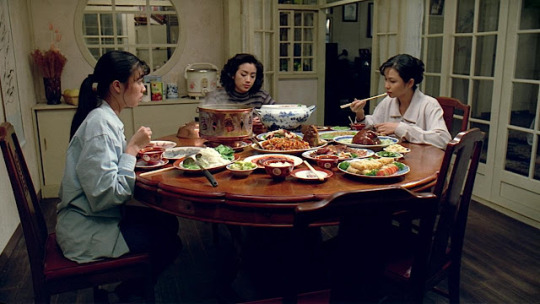
Yu-Wen Wang, Chien-Lien Wu, and Kuei-Mei Yang in Eat Drink Man Woman (Ang Lee, 1994)
Cast: Sihung Lung, Yu-Wen Wang, Chien-Lien Wu, Kuei-Mei Yang, Sylvia Chang, Winston Chao, Chao-jung Chen, Chit-Man Chan, Yu Chen, Ah-Lei Gua. Screenplay: Ang Lee, James Schamus, Hui-Ling Wang. Cinematography: Jong Lin. Production design: Fu-Hsiung Lee. Film editing: Tim Squyres. Music: Mader.
Ang Lee's Oscars for directing Brokeback Mountain (2005) and Life of Pi (2012) suggest something of his versatility. But then, Lee's filmography is all over the map: Since he returned to the United States after starting his directing career in Taiwan, he has made a Jane Austen adaptation, Sense and Sensibility (1995); a story of family dysfunction in Connecticut, The Ice Storm (1997); a Civil War-era Western, Ride With the Devil (1999); a martial arts epic, Crouching Tiger, Hidden Dragon (2000); a comic-book movie, Hulk (2003); an erotic thriller, Lust, Caution (2007); a story set at the fabled 1969 rock festival, Taking Woodstock (2009); and an experiment using radically new film technology, Billy Lynn's Long Halftime Walk (2016). If it's possible to discern in that almost random collection of films the kind of personal vision that auteur theorists believe is essential to the greatness of a director, I don't see it. He began with a personal vision, however, in the films he made in Taiwan after receiving his MFA in film at NYU: a focus on the conflict between the traditional and the new in Asian culture. Eat Drink Man Woman is the third of these, after Pushing Hands (1992) and The Wedding Banquet (1993), in what has been called Lee's "Father Knows Best" trilogy. Sihung Lung, who played similar roles in the other two films, is Chu, master chef at a large hotel restaurant, a widower with three unmarried daughters. The oldest, Jia-Jien (Kuei-Mei Yang), is a schoolteacher who converted to Christianity after a failed love affair; the middle daughter, Jia-Chien (Chien-Lien Wu), is a workaholic airline executive in line for a promotion that will get her transferred to Amsterdam; the youngest, Jia-Ning (Yu-Wen Wang), is still in school and works part-time at a Wendy's, where she commiserates with a co-worker whose boyfriend is inattentive -- largely because he's fallen for Jia-Ning. They all gather regularly for a Sunday dinner prepared by their father in a bravura opening sequence that details the skill and technique with which the chef creates his classic dishes. But the dinner is something of an ordeal for the daughters, each of whom is preoccupied with her own love life, as well as being concerned about the health and future of their aging parent. It's a well-plotted film, written by Lee with Hui-Ling Wang and James Schamus, whom Lee met at film school and who became his frequent producer and co-writer. Tim Squyres is the film editor whose work shines in the opening food-preparation sequence and in the intercutting of the daughters' several stories, and the cinematography by Jong Lin gives us an effective traveling shot through the crowded kitchens of the hotel restaurant. But the movie stays on a superficial level when it comes to examining the lives of the Chu family, especially when you compare it to another family drama by a Taiwanese director, Edward Yang's Yi Yi (2000), whose characters have a depth lacking in Lee's film. With his versatility and technical prowess, Lee reminds me most of a classical Hollywood director like William Wyler, who gave us brightly polished entertainments as varied in tone and genre as Roman Holiday (1953), Ben-Hur (1959), and Funny Girl (1968), but without showing us anything of himself as an artist.
4 notes
·
View notes
Text
Catch NCT DREAM, WayV, KARD and ALICE live at SEEN FESTIVAL in Kuala Lumpur 2023

KUALA LUMPUR, 31st December 2022 — K-pop fans, rejoice! Get ready to see and be seen by your favourite idols at the ultimate K-pop experience this January!
Organised by CM Live, SEEN FESTIVAL in Kuala Lumpur 2023 will see a star-studded lineup featuring NCT DREAM, WayV, KARD and ALICE taking the stage at Axiata Arena, Bukit Jalil on Saturday, 28 January 2023 from 6:00pm onwards.
Dreams are coming true for fans of NCT DREAM as the boy group is set to perform at the festival. Made up of Mark, Renjun, Jeno, Haechan, Jaemin, Chenle and Jisung, they debuted under SM Entertainment in 2016 with the digital single Chewing Gum and turned heads with My First and Last and other hits. NCT DREAM made K-pop history when they became the youngest group to achieve million-seller status with their first full-length album Hot Sauce.
Joining the festival lineup is WayV, which stands for “We Are Your Vision”, a boy group formed by SM Entertainment. They debuted in 2019 with the digital single album The Vision and bagged the Best New Asian Artist Award at the Mnet Asian Music Awards that same year. Following their appearance at SMTOWN Live 2022 in August this year, they made a comeback with their fourth mini album Phantom in December.
Four-member co-ed group KARD, an abbreviation of different "cards" assigned to each member – BM with the “King” card, J.seph the “Ace”, Somin the “Black Joker” and Jiwoo the “Colour Joker”, debuted in late 2016 with the single Oh NaNa and subsequently made waves with Don't Recall which gained huge popularity not only across Asia but also the Western world, denoting their star power across borders.
Also performing at the festival is the 7-member girl group ALICE which consists of Do-A, Yeonje, Yukyung, Sohee, Karin, EJ and Chaejeong who symbolise heart, wind, water, sky, forest, star and moon, respectively. ALICE made their debut in 2017 with the release of their first mini album WE, first and is known for their range of hits including Pow Pow, Summer Dream, JACKPOT, Power Of Love and DANCE ON.
With the power of eye contact as the focal point, SEEN FESTIVAL in Kuala Lumpur 2023 will have a special SEEN ZONE for fans to feel the exhilarating moment when their eyes meet the eyes of their idols. Stay tuned as ticketing and other information will be announced soon.
4 notes
·
View notes
Text
Justine Triet

Justine Triet, regista e sceneggiatrice, è tra le figure più interessanti e premiate del nuovo cinema francese.
Col suo film Anatomia di una caduta, ha vinto l’Oscar alla miglior sceneggiatura originale, la Palma d’oro al Festival di Cannes, due Golden Globe, un Critics Choice Award e un Premio BAFTA.
Le sue sono piccole storie che si agitano dentro la Storia. Nei suoi film cortocircuitano finzione e realtà, pubblico e privato, video arte e performance.
Nata a Fécamp, in Normansia, il 17 luglio 1978, si è laureata all’École nationale supérieure des beaux-arts di Parigi, nel 2003.
Dopo la laurea, si è fatta presto notare con le sue prime opere che hanno partecipato a diversi concorsi cinematografici. Il cortometraggio Trasverse (2004) è stato selezionato ai Rencontres Internationales Paris/Berlin e L’amour est un chien de l’enfer (2006) è stato proiettato alla Biennale d’arte contemporanea di Lione. Entrambi i film affrontano aspetti legati all’attualità sociale e politica, concentrandosi sulla “coreografia” delle manifestazioni politiche e degli assembramenti pubblici.
Sur Place, del 2007, che ha ricevuto la menzione speciale al Festival di Brive è stato inserito nelle collezioni del Centre Pompidou e del Museu Berardo di Lisbona. Girato da una finestra durante le proteste studentesche anti CPE a Parigi nel 2006, il suo sguardo è sul conflitto e sul ruolo dell’individuo all’interno di un gruppo, l’ambiguità e la visione stereotipata che i media rilanciano di questi eventi. La cittadinanza diventa protagonista pur restando una massa compatta e uniforme.
Nel 2009 ha diretto il cortometraggio-documentario Des ombres dans la maison, ambientato nella periferia di San Paolo, in Brasile, che racconta la storia del quindicenne Gustavo, della madre alcolista e dell’assistente sociale, pastore della chiesa evangelica, che deve deciderne o meno l’affidamento. Questo film rappresenta una svolta nel suo lavoro, perché pur confermando il suo interesse per i fenomeni di massa, come quelli che hanno al centro i predicatori, introduce una più marcata attenzione e un’intimità con i personaggi di cui narra la storia.
Vilaine fille, mauvais garçon, il suo primo cortometraggio di finzione ispirato nel titolo a una canzone di Serge Gainsbourg, è la storia di due trentenni che la solitudine fa incontrare per caso a una festa, Thomas e Laetitia. Tra dramma e leggerezza, per loro è l’inizio di una notte “fuori orario” sulla strada della felicità. Il corto, nominato ai César nel 2012 ha vinto numerosi premi in vari festival francesi e internazionali, candidato all’Orso d’oro per il miglior cortometraggio, ha vinto il Prix UIP Berlin.
Il suo primo lungometraggio è stato La Bataille de Solférino del 2013, candidato ai César per la migliore opera prima, selezionato all’ACID di Cannes, Premio del Pubblico al Festival Paris Cinéma, considerato dai Cahiers du cinéma uno dei dieci film più belli dell’anno, è la storia di una giornalista che affronta la giornata delle elezioni vinte da François Hollande in Rue de Solferino, storica sede del Partito socialista francese. Girato in presa diretta tra i sostenitori che aspettano il risultato delle urne, il film si immerge nella realtà di un grande evento nazionale facendo rimbalzare la “guerra” politica con quella famigliare della protagonista che, per assicurare i servizi alla rete ha lasciato a casa le sue bambine, proprio il giorno in cui il padre separato vuole vederle. Un pezzo di metatelevisione e metacinema che fotografa angosce private e pubblici conflitti.
Anche Victoria, commedia sofisticata presentata in anteprima mondiale alla Settimana della Critica del Festival di Cannes 2016 è il ritratto di una donna complessa, contesa tra vita professionale e personale. Un film cinico e romantico sulla spirale emotiva di una donna che cade, sbaglia e si rialza, e sulle ossessioni della regista: le difficili relazioni tra i sessi, la solitudine, i figli, la giustizia, i soldi, il sesso.
Sempre a Cannes, in concorso, ha presentato Sibyl – Labirinti di donna nel 2019 a cui è seguito il pluripremiato Anatomia di una caduta del 2023, un legal drama che ha come protagonista una scrittrice sospettata della morte del marito in una remota località di montagna.
Un film appassionante, femminista, sfaccettato, intimista e pieno di colpi di scena. Un’opera di alto livello sull’ambiguità del reale. Un grande lavoro sull’infanzia rubata, violentata, sulla lotta estrema di un adolescente per riappropriarsi il più possibile di quanto stanno cercando di sottrargli. L’opera era stata anche candidata agli Oscar per la miglior regia.
Justine Triet non smette di sorprendere e di collezionare critiche positive per il suo sguardo che penetra nel profondo delle cose e delle persone, per la grandezza nel mostrare i diversi punti di vista. Un’artista che si dà tanto e che in ogni sua fatica riesce a sorprendere e incantare il pubblico.
0 notes
Text
Fantasia Festival 2024: Horror, Mike Flanagan & More!

The Fantasia International Film Festival will celebrate its upcoming 28th edition with an electrifying program of screenings, workshops, and launch events running from July 18 through August 4, 2024, returning to the Concordia Hall and J.A. de Sève cinemas, with additional screens and events at Montréal’s Cinémathèque Québécoise, Cinéma du Musée, Théâtre Plaza, and BBAM! Gallery. The festival website is now live with over 125 features and 200+ shorts available to be explored. Ticket pre-sales are now open. Plenty of excellent horror films and shorts are headed for audiences at the 28th Fantasia Festival. Let's examine some of the stories being told this year.
Mike Flanagan 2024 Career Achievement Award

For his imaginative and heartfelt horror visions; boundary-breaking achievements in making soulful, character-driven genre television commercially viable without compromises; and the extraordinary work he’s done in popularizing landmark authors to a new generation, Fantasia will be awarding their 2024 Cheval Noir career award to U.S. filmmaker Mike Flanagan. https://www.youtube.com/watch?v=wN1kyOUm8uk Flanagan is an artist Fantasia has adored since his first visit to the festival for the Canadian premiere of his haunting 2011 indie debut ABSENTIA, a foundational feature that contains all the core elements that have come to define the artist’s work: a unique perspective on occult possibilities, engrossing slow-burn storytelling approaches, inventively cinematic aesthetics, and above all else - deeply compassionate horror narratives built on agonizingly personal themes of loss. These elements have been consistent throughout his career, regardless of whether the work is a standalone creation or an adaptation of classic literature. https://www.youtube.com/watch?v=89UV8vmWXlY While it may strike some as odd to bestow an achievement award to an artist who’s almost certainly not yet reached a mid-career place, Flanagan has been so extraordinarily prolific and consistently brilliant in his output that the filmmaker has already accomplished several lifetimes of creation. https://www.youtube.com/watch?v=Q_P8WCbhC6s Beyond being one of the most inspired storytelling voices of his generation, Mike Flanagan is a bona fide, culture-shifting master of horror, having changed the landscape of the genre since emerging on the scene in 2011. Since then, Flanagan has brought audiences such modern classics as OCULUS (2013), HUSH (2016), BEFORE I WAKE (2016), OUIJA: ORIGIN OF EVIL (2016), GERALD’S GAME (2017), and DOCTOR SLEEP (2019), as well as the Netflix miniseries events The Haunting of Hill House (2018), The Haunting of Bly Manor (2020), Midnight Mass (2021), The Midnight Club (2022), and The Fall of the House of Usher (2023). His next feature is the forthcoming Stephen King adaptation THE LIFE OF CHUCK (2024), starring Tom Hiddleston, Mark Hamill, and Chiwetel Ejiofor.
More Horror Arriving at Fantasia Festival

IN OUR BLOOD A perfectly calculated, slow-burn nightmare that opens with the feel of an indie doc and gradually evolves into something uniquely sinister, IN OUR BLOOD is the narrative feature debut of Oscar-nominated documentarian Pedro Kos (REBEL HEARTS, LEAD ME HOME). Nothing is as it seems when filmmaker Emily Wyland (a phenomenal Brittany O’Grady of HBO’s White Lotus) teams up with cinematographer Danny (E. J. Bonilla, FX’s The Old Man) to shoot an intimate documentary about reuniting with her mother (Alanna Ubach, HBO’s Euphoria) after a decade apart. When her mother suddenly goes missing, Emily and Danny must piece together increasingly disturbing clues, hoping to find her before it’s too late.

4PM Inspired by the book “The Stranger Next Door” from critically acclaimed Belgian writer Amélie Nothomb, 4PM is a riveting psychological thriller from director Jay Song (THE NIGHTMARE) drenched in silent tension. Jeong-in (OLDBOY’s Oh Dal-su), is taking a break from his life as a teacher in his new countryside house when a written invitation to a neighbor (Jang Yeong-nam, PROJECT WOLF HUNTING) turns into a nightmare of excruciatingly awkward visits every day at 4PM.

FRANKIE FREAKO! After the success of PSYCHO GOREMAN, FX artist and director Steven Kostanski hits back with the zany, over-the-top FRANKIE FREAKO! Starring Conor Sweeney and Adam Brooks of Astron-6 fame, the film follows a nerdy man who just isn’t cool. In an attempt to impress his wife and boss, he’s lured by a 1-900 TV ad to party with a strange little creature called Frankie Freako. All hell breaks loose when Conor calls and Frankie and his two friends wreak interdimensional havoc in Conor’s life.

BLACK EYED SUSAN It’s been 21 long years since Scooter McCrae (SHATTER DEAD) released a new feature, and he’s lost none of his smart, transgressive bite. Desperate for work, Derek (Damian Maffei, THE STRANGERS: PREY AT NIGHT) accepts a job at a shady tech start-up, working intimately with Susan (Yvonne Emilie Thälker in a powerful debut role), a bleeding-edge BDSM sex doll meant to receive and appreciate sexual punishment as an integral part of her evolving AI. Shot on Super 16, BLACK EYED SUSAN counterbalances its dark, vulgar core with a surprisingly tender vulnerability, creating a lo-fi science-fiction landscape infused with surprising fragility, as legendary Italian composer Fabio Frizzi (THE BEYOND, ZOMBIE) lends the picture a lush, atmospheric backdrop.

CHAINSAWS WERE SINGING A true DIY passion project from Estonian filmmaker Sander Maran, CHAINSAWS WERE SINGING is a zany, blood-soaked musical about lovers split up by a chainsaw-wielding killer. Over a decade in the making, Saran not only directed but wrote, scored, shot, and edited this colorful murder-fest that’s part gory horror movie and part ridiculous musical. The camerawork is inventive, the editing slapstick, and the tone truly absurdist. Most importantly, though, the songs are incredibly catchy, with Sander clearly deeply indebted to Trey Parker and Matt Stone’s CANNIBAL! THE MUSICAL and Frank Oz’s LITTLE SHOP OF HORRORS.

STEPPENWOLF A bleakly pulverizing action thriller from celebrated Kazakh maverick Adilkhan Yerzhanov (THE GENTLE INDIFFERENCE OF THE WORLD, THE OWNERS) and Oscar nominated producer Alexander Rodnyansky (LEVIATHAN), STEPPENWOLF explodes off the screen with tension that will singe the flesh from your bones. Like a Kazakh MAD MAX directed by John Ford - or perhaps, THE SEARCHERS directed by George Miller - with a touch of Herman Hesse and classic samurai tales, STEPPENWOLF reinvents the codes of its inspirations with jolting doses of post-Soviet nihilism and morbid black humor. A desperate mother (Anna Starchenko, NARTAI) teams up with a psychopathic ex-cop (Berik Aitzhanov, GOLIATH, THE ASSAULT) to find her son who’s gone missing in a landscape consumed by riots and death.

HOUSE OF SAYURI Legendary J-horror director Koji Shiraishi (NOROI: THE CURSE) brings the genre to new levels of fun with HOUSE OF SAYURI. A vengeful ghost disseminates a family until a counterattack from a bold grandma brings a startling new dynamic into the house.

THE PARAGON Former Power Rangers director Michael Duignan’s utterly mad feature debut, THE PARAGON, electrifies with hilarity and trippy psychedelic visuals, delivers in the spirit of inspired low-budget New Zealand filmmaking that harkens back to early Peter Jackson. After experiencing a hit and run, an angry ex-tennis coach named Dutch (Benedict Wall, SHADOW IN THE CLOUD) embarks on a psychic training course to find the driver and get revenge. Alongside his witchy psychic coach Lyra (Florence Noble), Dutch must decide between being a victim of his fate or a slave to otherworldly evil in this spectacularly entertaining fantasy comedy where revenge becomes a cosmic experience. Co-starring an especially nuts Jonny Brugh (WHAT WE DO IN THE SHADOWS).

THE CHAPEL The stunning sophomore feature from award-winning director Carlota Pereda (PIGGY), THE CHAPEL marks the fantastic return of atmospheric, character-driven supernatural Spanish horror. Emma (Maia Zaitegi) wants to learn how to communicate with the spirit of a little girl who has spent centuries trapped inside a chapel. She tries to convince Carol (THE ORPHANAGE’s Belen Rueda), a cynical and fake medium, to help her in the hopes that contacting the spirit may help her to remain close to her dying mother after she passes. What Carol doesn’t suspect is that Emma really does have “the gift” and, if she keeps on trying to use it without her guidance, she will be putting her young life at terrifying risk.

Pictured: Hunter Schafer, Credit: Neon CUCKOO A seventeen-year-old girl (Hunter Schafer, HBO’s Euphoria) is forced to move with her family to a resort where things are not what they seem in this astonishing mix of mix of domestic tension, body horror, and perverse science from the gifted director of LUZ. Co-starring Dan Stevens, Jessica Henwick, Marton Csókás, and Jan Bluthardt.

THE TENANTS In a dystopian Seoul, office worker Shin-dong, threatened with eviction, rents out his bathroom to an eccentric couple whose strange behavior quickly escalates into a waking nightmare. A rising talent in the indie horror scene, writer-director Yoon Eun-kyoung creates a unique blend of soft science fiction, Kafkaesque absurdism, and dark comedy to highlight Korea’s very real social inequality problems.
Special Book Launch - 'I Spit on Your Celluloid'

Source: Fantasia Festival HEIDI HONEYCUTT’S I SPIT ON YOUR CELLULOID: THE HISTORY OF WOMEN DIRECTING HORROR MOVIES (Headpress Books) Friday July 26, 5:15PM, Cinema J.A. DeSeve A legendary curator, historian, and critic, author Heidi Honeycutt co-founded the Etheria film Festival and has written for a vast number of publications and outlets, from Filmmaker, Ms. Magazine, Moviemaker, and Indiewire to Bloody Disgusting and Rue Morgue. Fantasia is hosting the World Premiere book launch of Honeycutt’s “I Spit on Your Celluloid: The History of Women Directing Horror Movies” (Headpress Books), a comprehensive 20-years-in-the-making work that covers the evolution of women in horror cinema from 1896 to the present day. The official book launch will be taking place with a special screening of Christina Hornisher’s once-thought-lost 1974 horror gem HOLLYWOOD 90028. Honeycutt will introduce the screening and advance copies of the book will be available for sale and signing.
Short Horror Films at Fantasia Festival 2024
ARE YOU AFRAID OF FANTASIA? 2024 Like the popular Canadian television series ARE YOU AFRAID OF THE DARK? (1992-1996), this program is an international collection of horrific short films, many with comedic bite, and some dead serious. Amygdala (Sweden, dir. Oskar Johansson, Canadian Premiere) Coléoptère (France, dir. Martin Gouzou, Canadian Premiere) Dark Signals (USA, dir. Izzy Lee, Canadian Premiere) Hold Up (USA, dir. Ori Guendelman, World Premiere) Howl at the Dead (USA, dir. Gregg Bishop, Canadian Premiere) Monster Party (Canada, dir. Amara Burnett, World Premiere) Ouch! (USA, dir. Zach Kornfeld, International Premiere) Roger is a Serial Killer (USA, dir. Don Swaynos, International Premiere) Save Me (China, dir. Liu Di , International Premiere) Tinkerhell (United States of America, Noah Sterling, World Premiere) Read the full article
#2024horrorfilms#28thfantasiafilmfestival#fantasia#fantasiafilmfestival#Horror#horrorfilms#ispitonyourcelluloid#indiehorror#mikeflanagan#shortfilm
0 notes